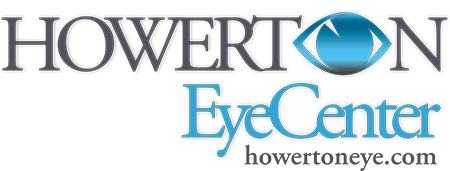Are you wondering why wearing sunglasses in Austin, Texas matters even on cloudy days? Whether you’re searching for an ophthalmologist in Austin or just an eye doctor near me, it’s essential to recognize the long-term impact of UV exposure on eye health. At Howerton Eye center, we aim to help patients understand the importance of UV protection, from cataract surgery Austin to daily dry eye treatment. This comprehensive guide incorporates insights from the American Academy of Ophthalmology (AAO), American Medical Association (AMA), and trusted sources to explain how ultraviolet radiation affects your eyes — and what you can do about it. Learn why sunglasses matter year-round, not just in the heat of the summer.
What Is UV Radiation and Why It Matters for Your Eyes
Understanding UV-A and UV-B
UV radiation consists of UVA and UVB rays. UVA penetrates deep into tissues, while UVB
causes surface damage. Both types can harm your eyes, contributing to cataracts, macular
degeneration, and surface growths like pterygium and pinguecula (Verywell Health).
How UV Rays Damage Your Eyes
● Photokeratitis (“snow blindness”) is a painful sunburn of the cornea caused by intense
UV exposure (Wikipedia).
● Cataracts result from UV-induced protein damage in the lens (TIME).
● Macular degeneration risk increases with cumulative UV exposure (Allure).
● Eye cancers and surface growths can develop from chronic UV exposure (The Vision
Council).
Year-Round UV Exposure: Myths vs. Facts
Cloudy Skies Don’t Block UV
Even on overcast days, up to 80% of UV radiation penetrates clouds, meaning sunglasses
should be worn year-round (Verywell Health).
Winter & High-Reflectivity Environments
Snow and ice reflect UV radiation, intensifying exposure—making winter sunglasses essential
for those at high altitudes or participating in winter sports (Milan Eye Center).
Choosing the Right Sunglasses: What to Look For
Full UVA/UVB Protection
Select lenses labeled 100% UV protection or UV400 (American Academy of Ophthalmology).
Optimum Frame Coverage & Wrap-Around Style
Wider frames or wrap-around sunglasses prevent UV from entering from the sides (American Osteopathic Association)
Lens Size, Tint, and Polarization
Lens darkness or color doesn’t determine UV protection. Choose large lenses for more
coverage. Polarized lenses reduce glare but must include UV filters (Verywell Health).
Contact Lens Wearers Still Need Sunglasses
UV-buffering contacts don’t protect uncovered eye tissues—sunglasses are still needed
Kids & Early Prevention
Young eyes are more susceptible to UV damage. Children should wear sunglasses and hats
outdoors (Georgia Center for Sight).
Beyond UV: Additional Benefits of Year-Round Sunglasses
Reduce Eye Strain & Squinting
Bright light causes squinting and fatigue; tinted lenses help reduce strain (LookerOnline).
Protect Eyes from Wind, Dust & Debris
Sunglasses act as a physical barrier, preventing irritation from environmental factors
(LookerOnline).
Shield Delicate Periocular Skin
UV exposure causes premature aging and increased skin cancer risk around the eyes
(LookerOnline).
Howerton Eye Center Services for UV Protection
Comprehensive Eye Exams in Austin
Our ophthalmologist in Austin performs full ocular evaluations, including lens and macula
checks to assess UV damage and cataract progression.
Post-Cataract Surgery & Lens Choices
Even after cataract surgery Austin, supplemental UV protection is required with
sunglasses—especially for patients with UV-only intraocular lenses (Verywell Health).
Preventive Guidance
We guide patients in selecting appropriate UV-blocking eyewear and emphasize year-round
use—especially for outdoor activities in Austin.
Frequently Asked Questions (FAQ)
Q: Can clear lenses protect against UV?
Yes—clear or lightly tinted lenses can block UV if labeled UV400 or 100% UV protection (Texas Department of Insurance).
Q: Do polarized lenses block UV?
Polarization reduces glare; UV protection comes only from proper filters in the lens .
Q: When is peak UV exposure?
UV rays are strongest between 10 AM–2 PM, particularly in Austin’s outdoor environment
(LookerOnline).
Protecting your eyes from UV damage isn’t just a summer habit — it’s a necessary year-round practice. In Austin, Texas, where abundant sunshine, reflective surfaces like water or concrete, and outdoor living are the norm, your eyes need reliable protection every season. If you’re ready to choose sunglasses that truly protect — backed by medical advice — Howerton Eye Center can help. Schedule an appointment today with our experienced team of ophthalmologists in Austin for a comprehensive eye exam and personalized guidance on UV protection.
References
● Verywell Health: UV Index effects & eye damage (Verywell Health)
● AAO: Choosing the best sunglasses (UNC School of Medicine)
● AOA: Summer eye protection guidelines
● UNC Ophthalmology: UV Eye Safety Month (UNC School of Medicine)
● Verywell Health: Survey on UV awareness
● Health benefits of year-round sunglasses (LookerOnline)
● IU Medicine: Contact lens and sunglasses advice (Indiana University School of Medicine)
● Verywell Health: Choosing sunglasses & UV defense (UNC School of Medicine)
● Wikipedia: Photokeratitis (UV burn) (Wikipedia)
● Wikipedia: Sunglasses overview (Wikipedia)
● Wikipedia: Sunburn & eye UV exposure (Wikipedia)


